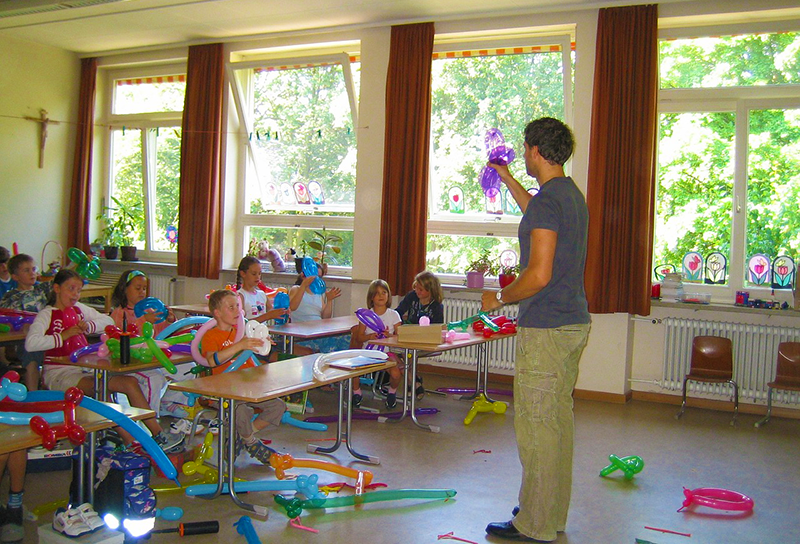Teaching abroad is more than simply helping cute little kids memorize multiple grammar rules or distinguish colors from one another. It’s not only helping university students prep for TOEFL or adults master the basics of Business English. It’s actually an act of cultural exchange.
While yes, most days will focus on paragraphs and participles and prepositions, your very presence will be accomplishing that essential, fundamental component of teaching your language to eager learners around the globe. You’ll be exposing them to your culture through your choice of clothing, how you carry yourself, how you interact with your students, how you arrange your lesson plans. Even down to the shoes you wear and your choice of transport.

Keep in mind, though, that you are the visitor. It is of utmost importance that you find ways to integrate yourself into your host community and culture. This does not mean fully losing yourself and your identity in this new world; instead, you should find ways to incorporate your “cultural baggage” into your new life—respectfully.
All while remembering that you are a humble visitor and learner yourself.
Mind your manners! Here are five tips on how to be a respectful TEFL teacher while abroad.
How to be respectful while teaching English abroad
1. Be well-versed in your host country’s cultural basics—including how to say common phrases in their language.
Whether you’re traveling to teach English abroad or simply on vacation, veteran travelers know that educating yourself in the social norms and etiquette of your host country can make a world of difference in your overall travel experience.
It takes time and conscious effort—not to mention research (*waves hello to BFF, Google*)—but getting familiarized with local behaviors, gestures, and mannerisms can help you feel more confident when interacting with those who live there.

You might not think that pointing your index finger is very rude, but in your host country, it might be a totally different interpretation!
“Words like “hello,” “thank you,” and “please” grease the wheels of communication with locals,” says the World Travel & Tourism Council.
All of these small efforts can lead to big wins in relation to your students, coworkers, and even that guy that runs the fruit stand on the street corner. It shows that you’re willing to make an effort to integrate rather than expect them to accommodate YOU.
Want to show mad-respect?
Step out of the textbook “Hello’s” and “Goodbyes” and really tune into how the locals actually greet one another. For instance, in China, it’s more common to ask “Have you eaten?” when you run into a friend, rather than the typically-taught “Ni hao.”
2. Keep your camera use in check.
You can’t read an article on travel etiquette and being a respectful TEFL teacher abroad without consideration of the photos you take. That’s why we’ve written an entire article on how to avoid being “trigger happy” >> you can read it here.

The TL;DR version goes something like…
- Using flash—or your camera at all—when explicitly asked not to (common in religious and historic sites)
- Acting like an inappropriate goofball while visiting somewhere of deep significance (i.e. don’t do cartwheels in front of the World Trade memorial)
- Taking photos of children, or any adult, without verbal permission. Trust us, it’s kind of creepy!
While we know it’s tempting to document every. last. moment. of your time abroad, we urge you to put the phone down and enjoy your surroundings—mindfully. Your insta likes don’t matter in the long run. How you hold yourself in a foreign culture and build relationships with locals does. Focus on the latter for lasting, cherished memories rather than square, heavily-filtered snapshots.
3. Dress appropriately.
This is a tough pill to swallow for some of our TEFL community, and we understand why. Many of us come from cultures that encourage individuality, freedom of expression, and the right to dress as you damn well please. And while we absolutely share these values, we’d like to invite you to step back and walk the circle to see how your host community might view this disregard for their culture.

It can (WILL) be hot, but you can survive a few months in Thailand without short shorts and scrappy tank tops. You might look your best in your low hung shorts or tight white singlet, but Koreans would probably rather see you in a baseball cap and well-fitted clothes.
Respect the culture with the clothes you choose to wear. Honestly, it’s part of the deal while traveling. Research in advance what is appropriate (or ask your Premier TEFL advisor) and then pack accordingly. Don’t even bring those booty shorts!
4. Learn power dynamics and be mindful of them.
While some bosses back home might love an assertive, outspoken team member, this isn’t always true in foreign countries. Sometimes, it’s best not even to eat until someone “higher up” has given you the signal that it’s okay.

We absolutely recommend that you observe cultural norms and adopt them as best as you can while teaching English abroad. Hierarchies aren’t necessarily bad, just different, and you might be able to learn more about yourself along the way.
Rather than potentially embarrass your co-teacher or get one of your new friends in trouble, be cognizant of how and when you should interact with elders, principals, etc.
5. Remember that you’re an ambassador for your home country, too.
Cultural exchange goes both ways. Your students, colleagues, and peers are interested in learning more about you and your home country. You can show them respect by thoughtfully sharing elements of your culture, too!
Is it the month of December? Incorporate silly snowy activities into your TEFL classroom in Vietnam. Have your students never tried brownies? Whip up a batch and give them a bite. Want them to meet your family? Bring pictures—we’re sure they want to meet your family too!

Respect the culture while teaching English abroad
Don’t be THAT GUY—the one that makes you roll your eyes and wish he wasn’t wearing an outfit that so *obviously* indicates he’s Irish like you.
TEFL teachers who don’t make a conscious effort to respectfully integrate into their host communities, cultures, and countries make the rest of us look bad. Together, we can instill more confidence in the value of what we bring and how we can be a true asset to communities around the world.
Go forth, humble traveler—the world awaits.
The post How to Be a Respectful Teacher Abroad appeared first on Premier TEFL.



